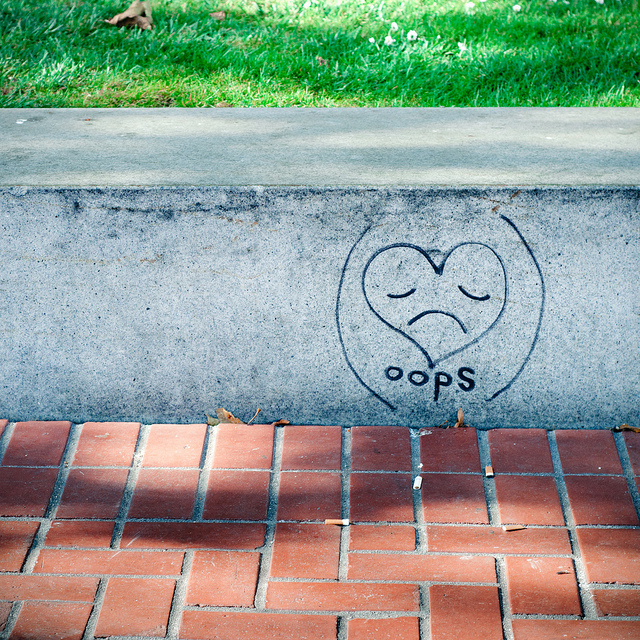“I’m sorry.” It is a phrase we use to ask for forgiveness for our wrongdoings and mistakes, and to attempt to erase the burden we have given someone else. Or so we think.
Friends invite me in, “I’m sorry for the mess.”
Personal training clients can’t complete their 20 pushups, “I’m sorry, I just can’t keep up.”
Responding to a nasty email written by a customer whose bad day just got worse because you don’t offer coconut milk in your coffee shop, “I’m sorry about your experience.”
You try to adjust one of your yoga students in an advanced pose, “I’m sorry, I’m really gross and sweaty.”
In today’s fast-paced world, the air is full of apologies. These apologies aren’t heartfelt, sincere or genuine. They are insecure, painful and tense, and an increasingly comfortable disposition. It is easier to apologize for everything than deal with the thought that someone thinks we are less than perfect.
We need to step away from being guilt-ridden and ashamed of who we are.
The relationships in our lives that matter the most won’t care if we have dirty dishes in the sink, our hair is greasy or we’re late due to traffic. They will embrace us with love as they notice we are still in yesterday’s clothes.
If there are ones who are disturbed by our backwash of living, that is the definition of a toxic person with the potential for a degrading relationship. It is safe to assume that they are not living a life as full as ours—greasy hair and all.
I could stop here.
You could stop apologizing and begin again when you are late for a meeting and feel the burning sensation in your blood as you walk into a room with all eyes on you. As your colleagues talk amongst themselves about what they did this weekend, you are sweating and melting in insecurity. You start your apology speech. Rambling on with no response from the room. You continue mumbling as you slump into your chair, only to realize your colleagues’ world didn’t stop turning because you were late.
We must learn to distinguish between the reality of what’s being said and our own dangerous insecurities.
When we are battling our own ugly insecurities, we are often creating a world that doesn’t exist. We are making ourselves believe that we have become a burden to everyone around us, and we end up feeling sorry that they have to witness our less-than-perfect existence. Cue obsessive apologies.
On the other side of this is the reality of the responses. Wouldn’t you agree that most of the time it’s,
“No worries!”
“We understand! Traffic was bad this morning.”
“It’s okay. I’ve been there, done that.”
“No way, your house looks great!”
“Oh darn. I love coconut milk, but I’ll just take the almond milk instead!”
The reality is no one cares about the unfortunate series of events that lead to a drawn-out apology. They care about the way we’ve handled the cards we’ve been dealt. We showed up. We wrote down a request for coconut milk in the future. We welcomed them into our home. All without an anxious, choked up apology.
Obsessive apologizing is a tug of war between our embarrassed ego and reality.
I challenge us all to pull back the act and refrain from apologizing for things we cannot change.
This world is begging us to be ourselves. No one needs to hear an apology for living our life the way we’ve designed it. And if they do, keep your mouth shut, walk away, and thank yourself for remaining true to your soul.
~
Relephant Read:
Sorry, Not Sorry: How to Stop Apologizing for Being You.
~
Author: Leah Kingsbury
Editor: Toby Israel
Image: David Goehring/Flickr // Shan Sheehan/Flickr
~







Read 6 comments and reply